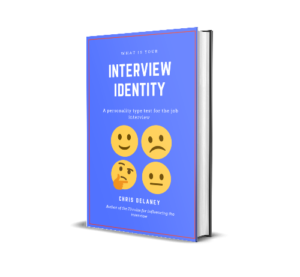Nursing is a growth sector, with qualified nurses working for a private practice or in the NHS.
Job interview questions, for both the public and private sector, will be very similar with employers looking to employ a qualified nurse who can work in a multidisciplinary role, requiring a range of skills.
Even though Nursing roles are set to increase competition is high with Nurses earning an average of £25-£30k once qualified, raising up to £40k with experience and up to £70 for senior nurses.
Employers, when interviewing prospect nurses, are looking at work ethic as the role requires unsociable hours, empathy due to direct patient tasks, and a vast array of knowledge and skills due to the diverse range of job duties.
Interview questions, therefore, are mixed with employers mainly asking behavioral and situational job interview questions.
How to prepare for a nursing job interview.
Before we delve into the questions and answers, applicants need to prepare for the job interview:
Check the job criteria
No two nursing jobs are the same.
With this in mind, read the job duties and essential criteria to help predict the job interview questions. All questions will be based, in the main, on the future employee’s main tasks.
Source suitable examples
On average each applicant should have 5 stories that each exhibit 3 different skills or knowledge depending on how the interview answer is framed.
An example answer that explains how a nurse supported a patient who was ill even though the nurse had a prior engagement can be used to answer ‘tell me a time you went above and beyond to support a patient?’ or ‘what would you do if on a routine check-up you notice that the patient was acting out of character?’
The answer to the first question could be structured by talking about the importance of the prearranged event, before explaining the patient’s situation, ending with the nursing staying to support the patient.
Whereas, the structure for the second interview question would be best suited by giving an overview of the routine visit – what was expected, followed by a detailed explanation of the patient’s symptoms and potential illnesses, ending with the actions the nurse took.
Same example, two different frames.
Plan the delivery of answers
In most cases interviewees will arm themselves with several relevant examples.
What makes a successful interviewee standout is the style of delivery.
In fact, the applicant job interview identity – how the interviewee is viewed in the job interview, varies depending on their delivery and communication style.
To be seen as highly skilled prove it with evidence:
- Testimonials
- References
- Data sets
- 360 Reviews
- Awards

Imagine being asked a question, as all interviewees do, the applicant answers using a real-life example.
Halfway through the answer, as the candidate is explaining what they did to achieve the objective, the evidence is provided to back up this claim. This results in a high-scoring interview answer.
Think about communication style
Low-scoring applicants often use short-sentences, a monotone voice and a low volume.
To be viewed as a professional experienced nurse, applicants must communicate with confidence.
Confident communicators, research shows, will:
- Vary tonality
- Use a variety of language
- Be more descriptive
- Have reduced filler words
- Positively frame all interview answers – even the weakness question.
Share knowledge level
The main focus, as always, should be the ability to highlight a higher level of knowledge and expertise than a competitive applicant.
Sector knowledge can be shown through the delivery of strong interview answers, often with real-life examples, the production of evidence, and the use of industry models and theories.
Answering technical interview questions by discussing, as an example the human care theory by Dr Jean Watson, shows a high level of knowledge and academic ability.
Nursing Interview Questions and Answers
First, we will list the most commonly asked nursing interview questions, then we will analyse a few of the sector-related questions, highlighting how to create a high-scoring answer.
Most commonly asked interview questions.
- Describe your experiences as working as a nurse and the different healthcare roles you have been involved in?
- What made you choose nursing as a career?
- Give me an example of when you have had to deal with a crisis?
- How do you collaborate with other healthcare professionals?
- What do you check before you administer drugs or medication?
- What are the steps for carrying out a routine investigation?
- How do you give patients healthcare advice?
- Give an example of building trust with a patient?
- Describe a time you had to work with a difficult patient?
- What would you do if you disagreed with a doctor?
- Give an example of managing a busy schedule?
- How would you support a patient who was suffering from extreme pain?
- Do you have any questions for the interview panel?
Questions and answers
Within the interview, the questions asked will fall into 3 key areas:
- Patient care
- Experience and knowledge
- Caseload management
Patient care interview questions
Patient care interview questions include:
- How do you build trust with a patient?
- Give an example of giving end-of-life care?
- What would you do if a patient became angry?
As well as looking for knowledge, the patient care questions allow an employer to view the applicant’s empathy, social skills, communication style, and personal qualities, in short, their temperament.
With this in mind, to answer any questions to relate to working directly with a patient use a story-telling interview answer.
Start the story, or real-life example, by descriptively explaining the patient’s situation. This could include if the patient was new or existing, a quick summary of their medical history and their current situation (the patient became angry, became ill, deteriorated, etc)
The middle section of the story structure must highlight the applicant’s skills and qualities. Here the interviewee can discuss the initial reaction to the current situation’ and describe the actions they took.
Actions can include remaining calm, following a process, a quick-thinking innovative solution, being assertive, being empathetic, going above and beyond.
This section is designed to showcase competencies. Explain the 5 steps taken to resolve the issue:
- ‘Initially I responded by (immediate action)…’
- ‘…this helped/solved/supported/assisted the patient (describe the outcome to the immediate action)…’
- ‘…Once the patient was out of immediate danger/had calmed down, I was able to (describe a well used industry process relevant to the situation IE completed CPR)
- ‘…this allowed me to assess the situation (more detail can be given)..’
- ‘…which resulted in (give outcome)…’
The final part of the story telling is a summary.
The conclusion should include a reference to the applicant’s temperament as well as their skills:
‘…to summarise, as someone who really cares for their patients I am always quick to respond to a crisis, which gives confidence to those around me, that’s how I (reference the original interview question)’.

Experience and Knowledge interview question
Job competency questions look like:
- How do you collaborate with other healthcare professionals?
- What do you check before you administer drugs or medication?
- What are the steps for carrying out a routine investigation?
- How do you give patients healthcare advice?
Each question is designed to test expertise.
To be viewed as a qualified professional, rather than an employee who, if employed, would need additional support, applicants need to frame their answers academically.
Model plus Example structure.
Detailing or breaking down industry-related models and theories, throughout the job interview, highlights a vast knowledge base.
Step 1 – state the model
‘The theory for dealing with (situation) is (state theory, model or process)…’
Step 2 – state experience
‘…an example of using this model was when (share a real life example)..’
Step 3 – show wider knowledge
‘…the downside of this model is (add the negative perspective) whereas (reference a 2nd model) does not have this problem, but can (add negative of 2nd model)..’
Caseload management interview questions
Administration interview questions are common across healthcare roles due to the large amount of paperwork required in this sector.
Interviewers are looking to test that the successful interviewee will be detailed oriented, possess time-management skills, and can easily multi-task.
Questions will include:
- How do you prioritise patient needs (or tasks)
- Are you experienced in using data management systems?
- Give an example of caseload management?
- How do you ensure that all tasks are completed to the set deadlines?
- Why is administration important in a nursing role?
Answer each adminsiational question with a confience statement:
‘I am highly experience in…’
‘In all my previous roles I have…’
‘Yes it is important…’
Next, breakdown how you would deal with (the criteria reference in the question)
‘..when working in my last role I (give an explanation of what steps were taken to achieve the job criteria)…’
End the answer by explaining how you would implement the skill in the new position
‘…if I was successful in gaining the job offer I would (achieve task) by (summarise steps you would take)…’
















